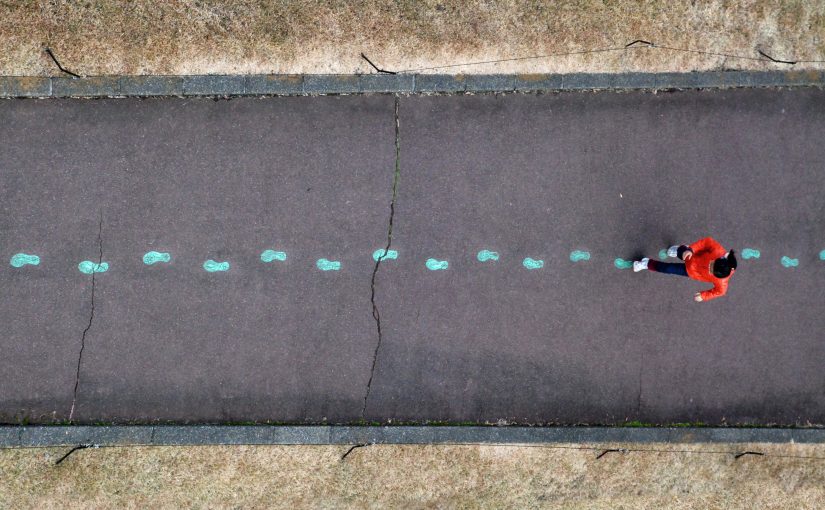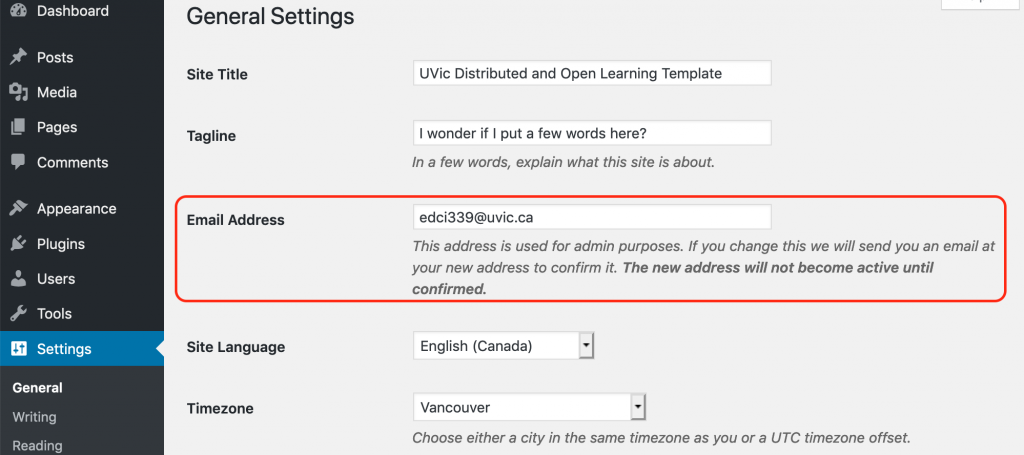Should education have a limitation? Education plays an important role in our lives. Knowledge can change the way we think, and the way we act. Sometimes, it might change one’s life. I think education should not have limitation. No matter who we are or where we are, we should have chances of education. With the development of technology, there are many educational revolutions appear. These revolutions have a deep impact on our lives. They change our society, person, culture, and economy. MOOCs means Massive Open Online Course. It offers many chances for everyone who wants to learn. Besides, it is the course for people to attend without limitation by online learning. MOOCs’ features are opening to everyone and providing free educational resources to the public. In this paper, the state of MOOCs will be introduced. The reason why people choose MOOCs and how it works will be also presented. At last, the positive effects of MOOCs will also be analyzed.
Why Many People Choose MOOCs
MOOCs is a convenient and valuable online learning way. MOOCs is popular because it contributes to everyone. Also, it offers a platform that people can learn without limitation. Nowadays, we have apple pay, so we seldom pay by cash. Also, we submit our assignment online, so there are fewer instructors require student hand in a paper. People like convenient stuff. Convenience is one of the reasons that attract people to learn by MOOCs. People can learn by MOOCs without area limitation. People who have the Internet can attend the course. No matter we are in Canada, Australia or China, we can take the course and learn something from it. Also, people can learn from MOOCs without career limitation. Education is no more just for young people or full-time students. People who play different roles in society can also enjoy education, such as housewife, banker or waiter. What’s more, people get value from MOOCs is positive. In “To Measure a MOOC’s Value, Just Ask Students”, Youngman said that there is a positive value on MOOCs. The main reason why people try to get an official certificate is that they want society to know their effort. Actually, MOOCs can also prove this as well. The employer will prefer someone who is interested in continuous education and put effort into learning new knowledge rather than basing on a certificate (2013). In this competitive society, people will not challenge your certificate. However, people will challenge your ideas which are able to be developed by the MOOCs course. People who have good ideas will have higher competitiveness. The convenience and value of MOOCs worth people taking courses. These also are the reasons that make MOOCs become popular.
How MOOCs Works
Large-scale and openness interaction are two main characteristics in MOOCs. Massive education is one of the features of MOOCs. Massiveness not only contains many learners but also provides diverse subjects for students. For example, as an undergraduate student. There is limitation subject at school. MOOCs provides more interesting subjects to everyone. Also, this large-scale model provides a platform for learners to interact with those who have the same interest as them. It just like a learning community which connects learners together to discuss the topic that they are interested in. Expert for traditional course material, reading, video and problem set, the discussion also assist to learn a course in MOOCs. At the very beginning, the form of e-learning is through TV and radio. There are very few students can finish the course because it is not mature at that time. However, with the development of technology, there is a big revolution in distance education. It changes the way of e-learning a lot. Nowadays, there are many different ways to assist people to learn the online course. In addition, even though MOOCs is a distant education, it can also have a good interaction between learners and teachers. In “Understanding the MOOCs continuance: The role of openness and reputation”, Alraimi, Zo & Ciganek said the openness of education means open to “people, places, methods, and ideas”. Openness connects with the right to freedom to obtain education (2015). MOOCs provides an interactive forum for teachers, learners, and assistance. Thus, people can have a good discussion on their course on this platform. In traditional education, the teachers are the center of the course rather than students. It means what instructors teach is what students learn. However, in MOOCs, the learns are the center of the course rather than instructors. It means learners can discuss and solve problems with other learners. It is a kind of experience of social interaction. More importantly, MOOCs provides an open educational resource. It makes MOOCs is a distributed social learning community. We can also say MOOCs is a platform that people get together and help each other in learning.
What Are The Effects On MOOCs
MOOCs have positive effects on the personal, educational, and social area. For personal effect, there are two kinds of impacts. Self-discipline is affected by MOOCs on the personal area. In the book “Open Education: from OERs to MOOCs”, Jemni, Kinshuk. & Khribi said when traditional education goes to MOOCs, the study mode is from passive to active. In the past, students get knowledge from the teacher. However, knowledge should not just be delivered. Thus, MOOCs is designed to motivate students to join in education (2017). The mode of traditional education is new knowledge is accepted by students. However, MOOCs is an open education which requires learners’ self-discipline. Nobody will supervise you to learn. This results in a problem which is a high drop-out rate. Jemni, Kinshuk. & Khribi said the issue of high drop-out rate is not just because of the problem of MOOCs’ design. The designer will focus more on motivating learners to a participant by gamification (2017). Gamification is a tool that motivates people to do something. MOOCs designer uses it to attract people and make them feel interested in learning online. For an educational effect, MOOCs is an educational revolution. Jemni, Kinshuk. & Khribi said the mode of traditional education to MOOCs is from formal to informal (2017). Traditional education is more like remembering knowledge. And the instructors lead you to find the answer. However, MOOCs is more like opening discussion and exchanging feedback. Learners can solve the problem by discussing with others. Also, this open education mode will lead learners to develop their logic and create more questions rather than just accept the results. For social effects, MOOCs provide more educational equality for students. In “Massive Open Online Course and educational Equality in China: A Qualitative Inquiry”, Tang (2016) said it still exist educational inequality because of gender and the local economy in some remote areas. The government provides less educational resources in remote areas. Also, women or disabled people have less educational opportunities (p.49-50). MOOCs provide equal education chances for people. In MOOCs, there is no difference between poor and rich, or woman and man. If you are willing to learn, there is a chance. Besides, the mode of MOOCs is cooperation instead of competing. In traditional education, there is a limitation bn of the school entrance. Thus, students try to have a higher grade for entering an excellent university. For this reason, students are a competitive relationship. However, the environment of MOOCs is learners get together and discuss the topic in a forum. They help each other which form a harmonious learning environment. MOOCs have positive effects on person, education, and society.
Conclusion
The convenience and value of MOOCs attract people to use this open education. Large-scale, openness and interaction forum are the characteristics of MOOCs. Then, there are some positive effects on a person, education, and society. Actually, people borrow books from the library and listen to the radio also free and open education. However, this kind of free and open education is informal. They just can be continued to study. Thus, MOOCs also is a continuing study which strengthens and supplement our knowledge. MOOCs will keep developing in the future. Even though it might not mature enough for some of us, this is a good way for us to get an education. It not only benefits our education but also benefits our society. MOOCs offers us a good educational environment to get knowledge. We should continue to get knowledge in order to develop and improve ourselves. In the future, more and more revolution in education will happen. We will see how the mode of education change.
References:
Alraimi, K. M., Zo, H., & Ciganek, A. P. (2015). Understanding the MOOCs continuance: The role of openness and reputation. Computers & Education, 80, 28-29. doi:10.1016/j.compedu.2014.08.006
Jemni, M., Koutheair, M., & Khribi, K. (2017). Open education: From OERs to MOOCs. Berlin, Heidelberg: Springer Berlin Heidelberg. doi:10.1007/978-3-662-52925-6
Tang, H & Carr-Chellman, A. (2016). Massive open online courses and educational equality in China: A qualitative inquiry, Journal of Educational Technology Development and Exchange (JETDE), 9(1), 49-50.
Youngman, O. (2013). To measure a MOOC’s value, just ask students. (massive open online courses). The Chronicle of Higher Education, 60(15)

